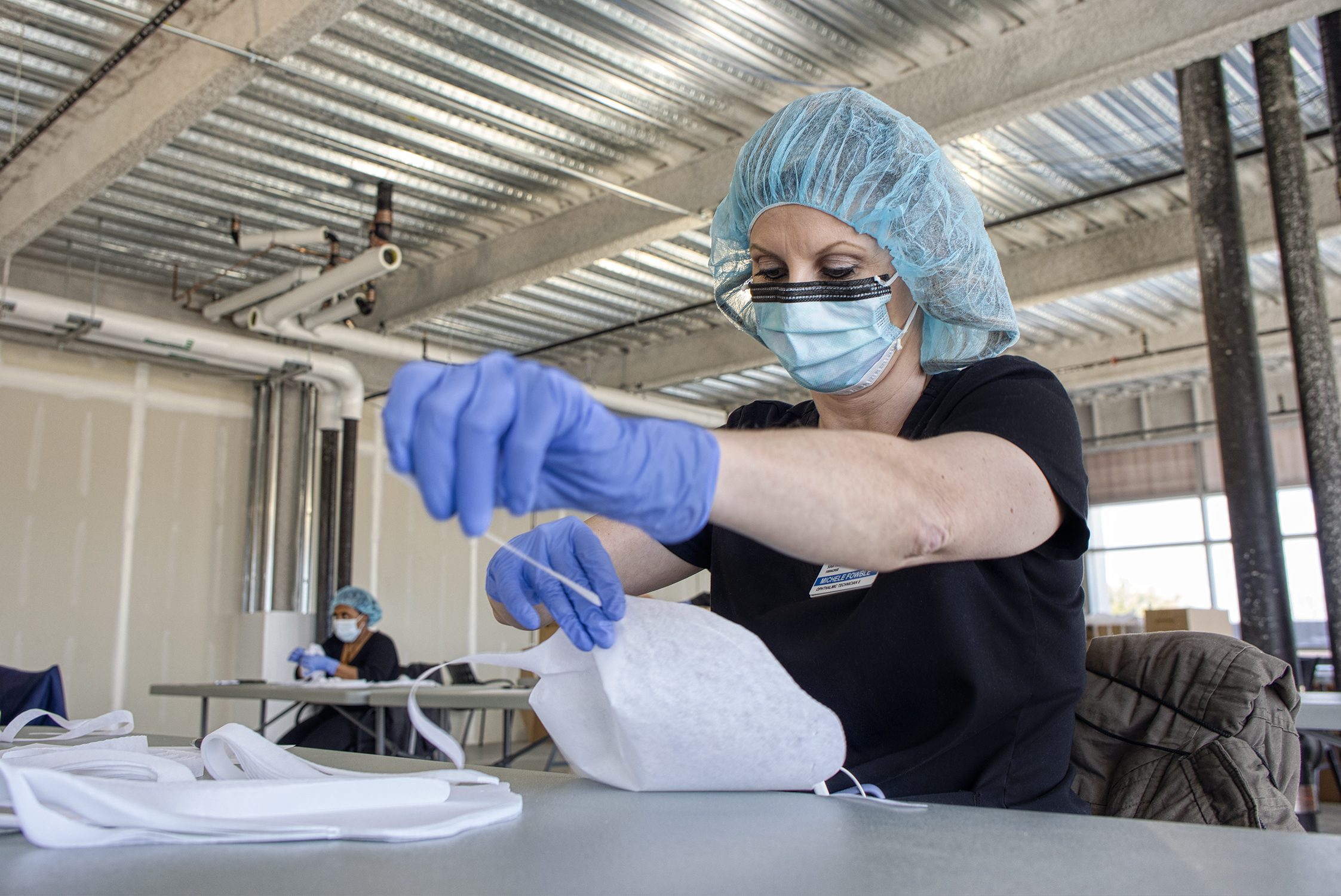Boston on Monday implemented its most stringent social distancing guidelines — including a recommended 9 p.m. curfew — as the city braces for what is believed to be a surge of coronavirus cases.
Mayor Marty Walsh announced the guidelines Sunday after the city saw a spike of 511 new COVID-19 cases over the previous 48 hours, warning Boston was only at the "beginning of the surge."
Walsh reported two additional deaths from COVID-19, bringing the city's death toll to 15. He also reported 259 new cases of the coronavirus — the city's biggest single-day increase — bringing Boston's total number of cases to 1877.
The guidelines — which extend until at least May 4 — also recommend that all residents wear masks when going outside and that people over 65 or those with underlying health conditions refrain from going outside and exercise at home.
The reactions of Bostonians have been mixed.
"I'm for it," said Boston resident Sevtap Demirci. "I think it's a good idea, I think the streets have been fairly empty at night, I don't see it making that big of a difference."
"I think any precautions we can take to flatten the curve is a good idea," said Boston resident April Gardner.
"I don't know how many people are actually going to listen to that," said Boston resident Megan Ratkey. "I'd hope people would just for the safety of others and themselves."
Here's what to know about the new guidelines.
Recommended Curfew
The recommended curfew extends through 6 a.m. each morning and applies to all residents except essential workers, the mayor said. People are encouraged to utilize delivery services as much as possible after 9 p.m.
According to the city:
- This advisory will address unnecessary trips to businesses, restaurants, and other locations, and is intended to encourage people to stay inside their homes at night.
- Residents are encouraged to utilize delivery services as much as possible after 9 p.m.
- As a reminder, residents are encouraged to remain in their homes as much as possible throughout the day and only leave for essential needs, including trips to the grocery store, pharmacy, emergency meal sites and other essential services. Residents are discouraged from visiting essential businesses only to browse and should be mindful of only visiting essential businesses to pick-up essential items.
Masks and Face Coverings
The city says masks or face coverings should be worn anytime a person leaves the house:
- In addition to social distancing when going out in public for an essential trip, wearing face covers will help to reduce the risk of a person spreading the virus, especially if they do not know they are sick. Face coverings should be worn anytime someone is outside the home, including on walks or other passive recreational activities.
- Face coverings should not be placed on children under 2 years of age, anyone who has trouble breathing, or is unconscious, incapacitated or otherwise unable to remove the cover without assistance.
- Face coverings can include a cloth, scarf, bandana, etc. that cover a person's mouth and nose. Homemade face coverings should be made of intact, close-weave cloth and allow comfortable breathing.
- Face coverings should be frequently washed using a washing machine with detergent and hot water and dried on a hot cycle. They can also be hand washed with soap and warm water and left to dry.
- It is advised that residents use a face covering, as opposed to a medical grade facemasks, in order to preserve protective equipment for health workers and those serving on the front lines in response to COVID-19.
The guidance on masks was in line with new CDC guidelines released Friday.
Restrictions at Parks
Walsh said despite the current guidelines, many people could be seen playing sports and at local parks and playgrounds.
Under the new guidelines, the city will close all areas for recreational sports at city parks:
- Recreational sports areas in city parks, such as courts and fields, will be closed to limit exposure and contact between people. As a reminder, all playgrounds in Boston have been closed since March 20, 2020 and will remain closed. Areas for passive recreation, like walking and jogging, will remain open.
- Additional signage will be posted on all recreational sports areas and outside of parks that will be closed. For a full list of park features that are closed, visit the city's website.
- If needed, Boston Police are empowered to disperse gatherings and they can order people to vacate closed sections of parks.
Recommendations for Higher-Risk Groups
Walsh also said people over 65 and those with underlying health conditions to take extra precautions, including refraining from taking walks or spending time outside "for the next few weeks" and exercising inside instead. According to the city:
- Trips outside the house should only be made when absolutely necessary, for either food or medications. Those experiencing difficulty with access to food, please call 311 or visit here for assistance.
- In addition, taking walks or spending time outside is discouraged for the next few weeks, and exercising inside the home instead is encouraged as an alternative.
- The underlying health conditions that can put someone more at risk are very common and include asthma, diabetes, heart conditions, kidney or liver disease or conditions that can cause a person to be immunocompromised, including cancer treatment and smoking.
- In Boston, over 11 percent of adults have asthma, and the rate is higher in black (15 percent) and Latino (12 percent) residents, as well as in Dorchester and Roxbury (15 percent each). One in four Boston public high school students have asthma, according to the Boston Public Health Commission.



